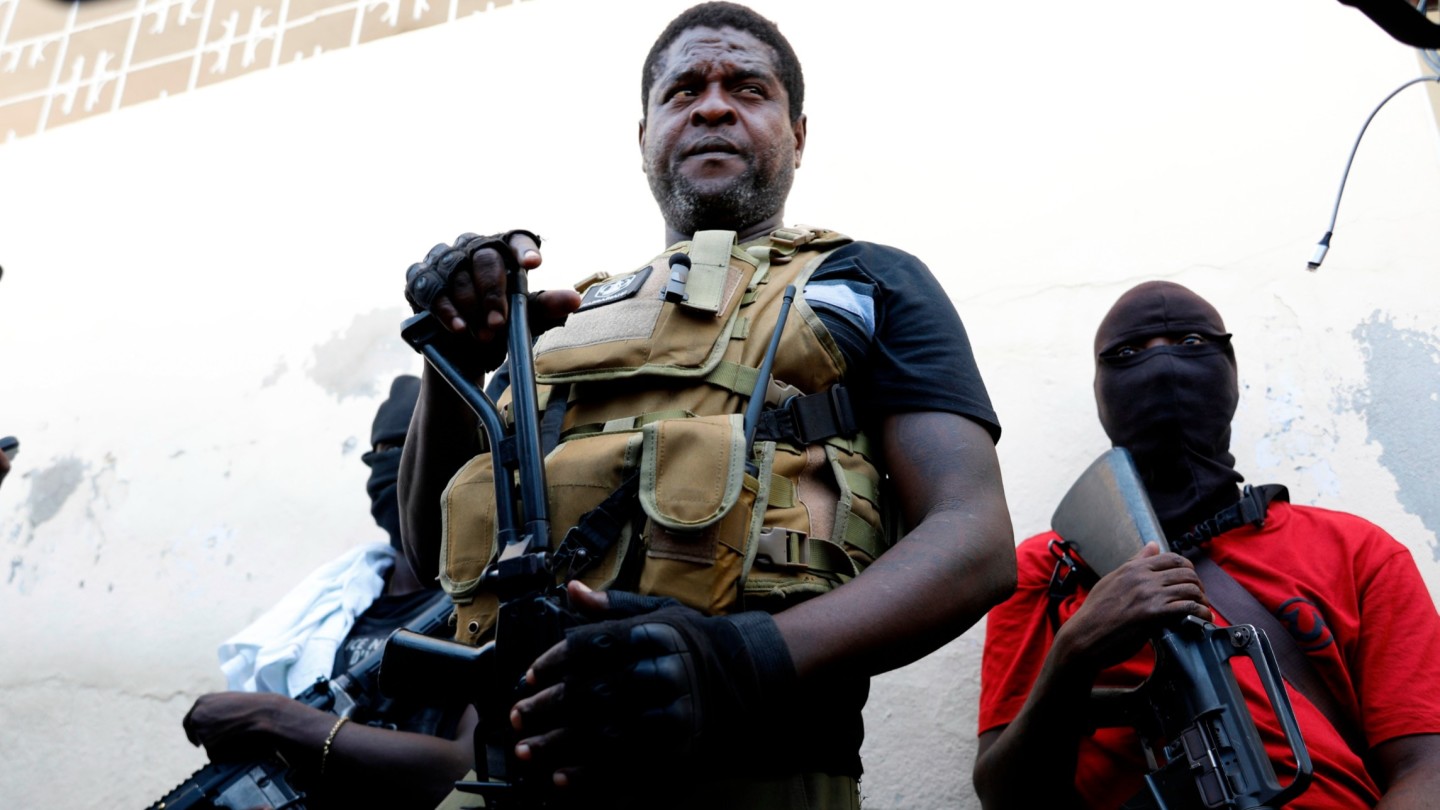
From our Bureau of Great Heroes of the Caribbean with some assistance from our Bureau Extremely Appropriate Comparisons to Fidel Castro and Che Guevara
Cuba’s closest neighbor — Haiti — has no government at the moment and the nation has been plunged into a brutal civil war being waged by rival gangs. The only ray of sunshine coming out of Haiti these days is the fact that the most brutal and most feared of these gangsters, known as “Barbecue”, has admitted that he is a great admirer of Che and Fidel and that his battle for power is nothing more than a “social struggle.” Finally, someone in Latrine America has had the decency to make an apt comparison to those two sociopaths.
Rumor has it that “Barbecue” obtained his nickname because of his penchant for burning the houses and corpses of his victims. Give the beast a prize for honesty. And, hey, maybe it’s time for someone to get rich by selling t-shirts with Barbecue’s face on them !
Loosely translated from Diario de Cuba
Three years ago, as chaos was taking over Haiti, gradually and inexorably as the current crisis has demonstrated, the figure of former police officer and criminal boss Jimmy “Barbecue” Chérizier emerged publicly. At the end of 2021, the BBC Mundo portal produced the first profile published by an international media outlet of this ruthless criminal.
Despite rampant poverty and an economy reduced to a minimum, Haiti experienced a decade of relative political calm under the governments of Michel Martelly and Jovenel Moïse, until the latter was assassinated in 2021. Since then, Haiti has sunk back into a spiral of chaos, violence, and ungovernability, with Chérizier playing a prominent role.
Barbecue Chérizier rose to power precisely in a context where what little institutionalism remained in the country was disappearing, during the nearly three years that Ariel Henry served as acting prime minister and avoided at all costs holding new general elections, as demanded by various political figures.
The former police officer directly challenged Henry when he took over the country’s two prisons, freed thousands of detainees, and demanded the prime minister’s resignation. This occurred in Port-au-Prince between March 2 and 3, and Henry ended up resigning a few days later from Puerto Rico, during an international trip where he signed an agreement promoted by the UN for the deployment of international troops, led by Kenya, to try to restore order.
Although Moïse is not generally linked to the widespread violence that has spread since his assassination, according to a report from the International Human Rights Group at Harvard Law School, which was released shortly before his assassination, it asserted that during his term “armed gangs are carrying out atrocious attacks against civilians in impoverished neighborhoods of Port-au-Prince with state approval,” as part of a plan to “crush dissent.”
According to journalists from the American agency Associated Press who interviewed him last year, in Haiti’s poor neighborhoods, Barbecue Chérizier is compared to Ernesto “Che” Guevara. However, he sees himself as a kind of Caribbean Robin Hood. At 47, he was an elite police officer and leads a federation of gangs known as G9 Fanmi e Alye (“The G9 Family and Allies”).
“I am not a thief, I am not involved in kidnapping, I am not a rapist, I am only carrying out a social struggle,” he told American journalists. In front of those journalists, he expressed his admiration for Fidel Castro and Martin Luther King.
In that first profile of 2021 published by BBC Mundo, it was stated that Chérizier earned his nickname “Barbecue” because of the cruel way he burned the homes and corpses of his victims. He asserts that he owes that nickname to his mother, who was a chicken vendor.
Continue reading HERE in Spanish
